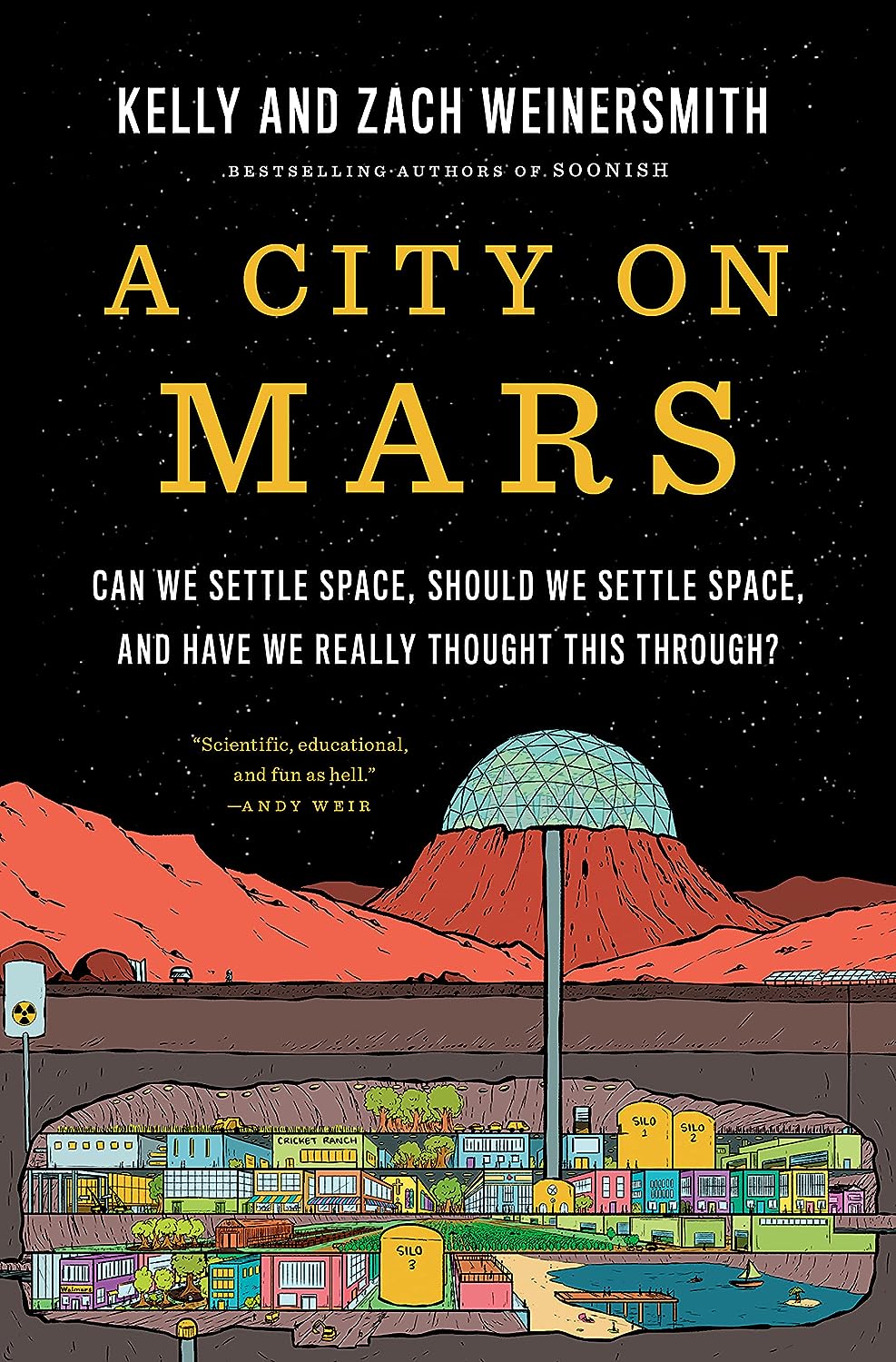Soh Kam Yung reviewed A City on Mars by Zach Weinersmith
Yes, we could live in space, on Mars, etc. but not so soon.
4 stars
A fascinating book that examines whether we can live in outer space or on other planets. In short, the answer is: probably, but it will take a lot of time. Questions about how we can live safety and peacefully in space need answers before we even try, in contrast to various 'space techno' advocates that say we can and should colonize space now.
The book is divided into several parts, each looking at what we know and don't know about living in space, and what answers are needed before we even try.
Part 1, on caring for the spacefaring, covers the effect space can have on bodies, from radiation exposure and a microgravity environment. Sex and reproduction are also covered. The ethics of populations in space on topics like eugenics (with limited resources, what do you do with people that don't 'fit') and mental health are also covered.
…A fascinating book that examines whether we can live in outer space or on other planets. In short, the answer is: probably, but it will take a lot of time. Questions about how we can live safety and peacefully in space need answers before we even try, in contrast to various 'space techno' advocates that say we can and should colonize space now.
The book is divided into several parts, each looking at what we know and don't know about living in space, and what answers are needed before we even try.
Part 1, on caring for the spacefaring, covers the effect space can have on bodies, from radiation exposure and a microgravity environment. Sex and reproduction are also covered. The ethics of populations in space on topics like eugenics (with limited resources, what do you do with people that don't 'fit') and mental health are also covered.
Part 2, on where will humans live off-world, covers possible destinations like the Moon, Mars, space stations and less desirable places like asteroids, Venus, Mercury, outer planets and other stars.
Part 3, on creating a 'Human Terrarium', looks at what it may take to create a self-contained habitat in space and on the surface of the Moon and Mars. This implies a full recycling of waste, and probably corpses too. Protection from space debris and radiation is required. And solutions to problems with dust and toxins and generating power are covered.
Part 4 looks at space law: how we got it, what is says about how space can be used, why it is now a danger to civilization, and how it might be changed. At present, the Outer Space Treaty governs how space can be used. But it was created in the 1960s, a time of political competition for space, and not suitable for the current world, where private enterprises and nations may compete for prime locations.
Part 5 looks at the paths forward. The history of other treaties (on Antarctica and the deep oceans) may show a way to a better space treaty. Here, the authors state they prefer a managed commons agreement to using space. The history of how states are formed on Earth show that getting states formed in outer space will face numerous problems.
Part 6 looks at whether space colonies should be a Plan B for Earth. It looks at the kinds of colonies that could be set up in space. Based on history and economics of such colonies, the may well resemble historical company towns. They also look at what a minimum viable population for an independent colony might be, which may be in the thousands. The politics and regulation in such colonies are also examined as well as the possibility of colonies having space weapons.





